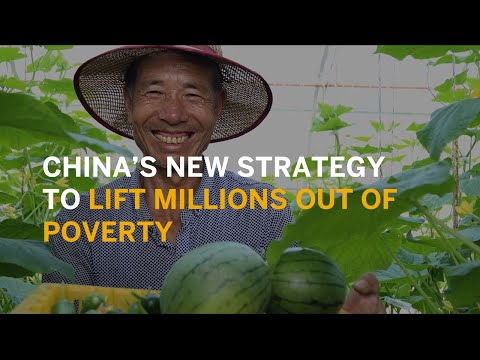When Li Jie left his rural village in 2014 to begin a new life in Chengdu, a sprawling city of 16 million and the largest in Sichuan province, he could never have dreamed he would find prosperity by returning home as a farmer.
Back then there was very little reason to look back. Poverty has hindered the development of rural Sichuan for decades, but through government initiatives and entrepreneurial spirit, extreme poverty has largely been eradicated.
Since 2015, Li has maintained orchards full of blooming dragon fruit plants, one of China’s most popular fruits. An annual yield nearly 30,000 kilograms per acre has helped earn Li the honor of “top return entrepreneur” in Sichuan in 2020.
Supported by SAP, he is now learning to apply new technologies in combination with trickle irrigation to achieve even greater yields at less cost.

Li Jie’s story is an integral part of China’s transformation to economic superpower and its negative impact on rural areas. Four decades of strong growth and increases in per capita income have lifted more than 800 million people out of poverty and improved food security, nutrition, and human development.
But there has been a palpable drain on rural towns, whose populations are projected to drop from 40% of China’s total population today to 31% by 2030. If not checked, this trend is predicted to have a dramatic effect on the supporting capacity and social stability of rural areas, according to Matteo Marchisio, head of East Asia Regional Hub at the International Fund for Agricultural Development.
Urban-Rural Divide Is Global
The worldwide exodus from rural areas to cities is not new and it is not limited to China. The world’s rural citizens currently make up 45% of the global population but bear a disproportionate burden of poverty, malnutrition, and poor quality of life. This is why policy experts worldwide are calling for a system-wide transformation to make rural areas more attractive to young people.
Rebalancing initiatives, referred to as “rural revitalization,” are essential to achieving sustainable living conditions for all, concluded a recent report from the International Food Policy Research Institute. “Policies, institutions, and investments that take advantage of new opportunities and technologies, increase access to basic services, create more and better rural jobs, foster gender equality, and restore the environment can make rural areas vibrant and healthy places to live and work,” the report stated.
SAP Introduces The Leader Plan
Dragon fruit farmer Li Jie is at the forefront of an emerging trend in China, as more and more young people are attracted by government-sponsored incentives to move back to their rural communities and start new livelihoods as farmers. According to China’s Ministry of Agriculture and Rural Affairs, 7.5 million young people returned to rural areas in 2019.
Since 2017, SAP has been supporting China’s “rural renaissance” by providing digital skills training and mentorship to these returning workers. Under the title “The Leader Plan,” SAP partnered in 2019 with YouChange Foundation, China Charity Alliance, and Tsinghua University to launch the new initiative. SAP provides funding and volunteer expertise to develop learning courses that are delivered online. By 2023, SAP aims to train 50,000 rural entrepreneurs across 30 provinces.
After moving back to his village, Li took online courses which focused on the industrialization and commercialization of agriculture. With his new knowledge and skills, Li plans to build intelligent greenhouses and manage the temperature in them automatically.
Now in its third year, online courses have reached more than 43,000 learners. SAP has also supported Tsinghua University in conducting an “Elite Camp” courses and mentoring for entrepreneurs. “We’ve had great impact with The Leader Plan, and I look forward to more success in the future,” said Mark Gibbs, president SAP Greater China.
Next Steps for The Leader Plan
In the future, SAP in China will explore how digital farming technology and information systems can help agricultural productivity in rural China. This includes the use of e-commerce, Internet of Things (IoT), data analytics and other technologies that support the entrepreneurs’ ambitions of improved productivity and commercialization. Employee volunteers will contribute their expertise to the program, and other opportunities such as the SAP Social Sabbatical program will be explored to train rural entrepreneurs with the skills they need to grow their businesses sustainably.
Top image via video.



